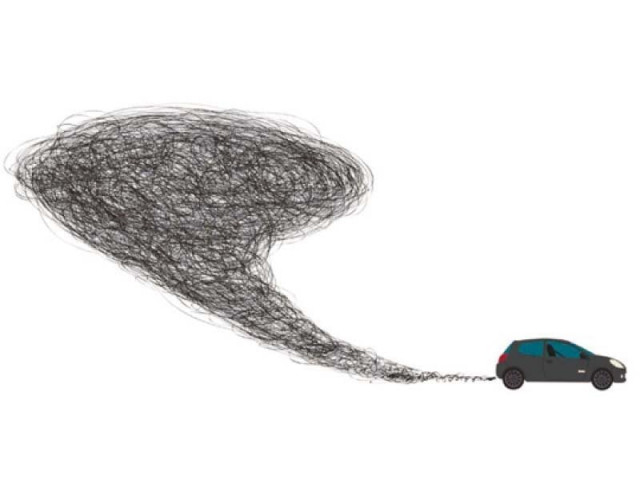EPA failure: Islamabad vulnerable to carbon emission
National Environmental Quality Standards does not cover carbon emission

This startling revelation was made by Federal Minister for Climate Change Zahid Hamid in the National Assembly on Monday.
Replying to a question raised by MNA Munaza Hassan from Pakistan Tehrik-i-Insaf, he said the carbon emissions were not covered in the National Environmental Quality Standards (NEQS) notified under the Pakistan Environmental Protection Act, 1997.
As a result, the Pakistan Environmental Protection Agency (Pak-EPA) had not been monitoring carbon emissions in the capital city.
Hamid further added that EPA in collaboration with the Islamabad Traffic Police used to check vehicular emissions on a daily basis. However, this activity was discontinued since 2009 owing to the non-availability of field staff.
He said that keeping in view the impact of the activity, efforts were being made to restart vehicular emissions testing on a daily basis.
Notwithstanding, the minister said that it would be subject to the availability of funds and human resources.
He elucidated that measures — phasing out led from gasoline, reduction in sulphur from diesel, conversion to CNG, Pakistan Clean Air Programme (PCAP) and adoption of Euro-II emission standards for vehicles — were being taken to reduce the smoke emission from vehicles.
Interestingly, carbon emission monitoring projects started in 2005 with the funding provided by Japan International Cooperation Agency (JICA), subsequently, temporary staff had been employed for the project.
“Full-fledged staff was hired for the environmental monitoring which used to work in collaboration with the Islamabad Police,” an EPA official told The Express Tribune.
He said that the team utilised vehicle emission analysers which are still available with the EPA but is not in use currently.
He added that technical support for the project was provided by EPA, while ITP would enforce the law on all those vehicles which were exceeding National Emissions Quality Standards (NEQS).
In the past, several attempts were made to revive the monitoring project in the capital city but to no avail for various reasons.
Despite the fact that Pakistan unleaded gasoline in 2000, Petrol’s Research Octane Number (RON) is 82 RON while new cars are needed at 92 RON.
“The country could not make any significant strides on the Pakistan Clean Air Programme (PCAP) because the chief stumbling block was that the government could not establish emission testing laboratory to date,” a former EPA director told The Express Tribune on the condition of anonymity.
He said that the country could not make a 100 percent compliance of Euro-II standards in diesel, in accordance with the 2005 Lahore Clean Air Commission recommendations.
The recommendations had given a road-map till 2013 for compliance with Euro-II standards in diesel vehicles. It is very unfortunate that the recommendations were not fulfilled despite agreeing with them.
“Without the availability of euro compliance fuel in the country the transport on China-Pak Economic Corridor could not be run,” the official warned.
Published in The Express Tribune, August 9th, 2016.



















COMMENTS
Comments are moderated and generally will be posted if they are on-topic and not abusive.
For more information, please see our Comments FAQ